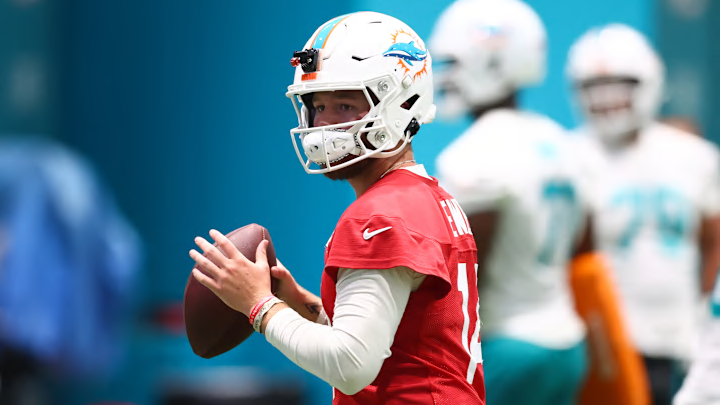The decision from QB Quinn Ewers to leave college for the NFL has sparked debate, but it mainly revolves around his financial situation. Ewers reportedly turned down guaranteed offers — some approaching $4 million, and even more under certain school-specific pipelines — to begin his pro career behind starters Tua Tagovailoa and Zach Wilson in the Miami Dolphin's quarterback room.
Despite entering the NFL, reports suggest Ewers stood to gain up to $4 million in NIL compensation by transferring, or signing with, the University of Miami, highlighting a major financial trade-off when he opted to enter the NFL instead.
Ewers was selected with the 231st overall pick in the seventh round of the 2025 NFL Draft by Miami. He signed a four-year rookie contract worth $4.3 million, including a $131,331 signing bonus and an average annual salary around $1.08 million. This season Ewers will make $840,000.
But it's not all bad news as Ewers is reportedly earning $3 million in off-field endorsements with Panini which closes the gap on what he could have made from NIL deals had he remained in college. Ewers announced an exclusive autograph and trading-card agreement with Panini America in May 2025. It is one of the most lucrative rookie endorsement contracts ever for a seventh-round draft pick.
Longhorns head coach Steve Sarkisian noted that Ewers never took money from the Texas collective, instead relying on national brand deals with multiple companies.
Still, even with endorsements, Ewers’s total first-year earnings likely trail what he could have made if he was in college. But with $3 million in trading-card money, plus his $4.3 million NFL contract, Ewers is already in a good position. So while it appears to many that he took a "pay cut" to be in the NFL (and while it may be true for the first year), the quarterback has found plenty of commercial value even after a late-round draft slide.
